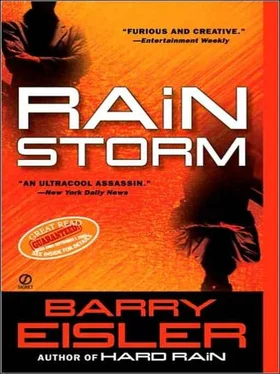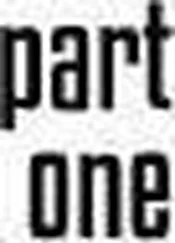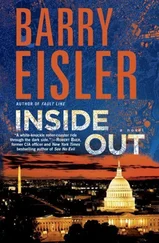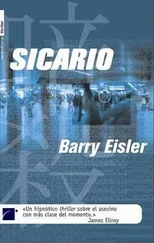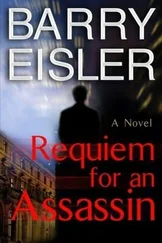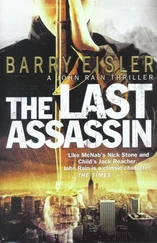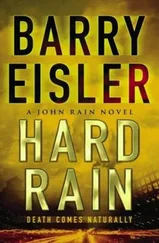“Your NE Division has a relationship with Belghazi,” I said. “Belghazi gives them information about other people’s deals, particularly in the WMD trade, and in return they protect him in a variety of ways, including overseeing transshipments through Hong Kong.”
“Holy shit, how the hell did you learn this?”
I shrugged. “You’re telling me you didn’t know?”
“I’ve discovered a few things since we last spoke,” he said, looking at me. “But I’ve got insider access, and you don’t. Which is why I’m asking.”
I smiled. “Forget about how. Call it ‘sources and methods.’ What matters is what-and who.”
“Who-”
“There’s a CIA NOC, based in Hong Kong, attached to the CTC, formerly with NE Division. He’s the connection between Belghazi and Crawley.”
I watched him closely, looking for a reaction. I didn’t see anything.
“You know about the NOC?” I asked.
He nodded. “Of course.”
“All right. My guess is, he’s part of the reason that Belghazi seems to enjoy Macau so much. Belghazi likes to handle transfers in Hong Kong, where the CIA can help with the heavy lifting. Macau is right next door.”
“You’re saying it’s not the gambling?”
I shrugged. “I’m sure he loves gambling. But he also knows that analysts focus on things like gambling when they’re creating profiles. He knows that, if his movements are tracked to Macau, his profilers will just say, ‘Ah, it’s the gambling,’ without probing deeper. He’s using your expectations about his known habits to obscure whatever his real purpose is. Feeding you exactly what he wants you to eat, knowing you’ve already got a taste for it.”
We were silent for a long moment, during which Kanezaki drummed his fingers on the table and ignored his food. Then he said, “You’re right.”
“I know.”
He shook his head. “What I mean is, last time we met, when you suggested that Macau might not be a side trip for Belghazi, but maybe the main point, it got me thinking. I did some checking. Now, I told you that we’ve got a fix on Belghazi’s sat phone. The units he uses are part of a low-earth-orbit network. People like the LEO networks because reception is clear and because the satellites’ proximity to earth means reduced signal latency, but the networks are less secure.”
“Because multiple satellites are picking up the signal?”
“Exactly. So you can always triangulate. It’s not supposed to be possible because the signals are digitized and encrypted-it’s like, okay, you know there’s a needle in the haystack, but that’s a far cry from actually being able to find the needle. But, trust me, if you use one of those phones, we can find you.”
I thought for a moment. “You said ‘units.’ Has Belghazi switched phones recently?”
“Yeah, he has.”
“I thought he might. He must have decided that the satellite phone was how he got tracked to Macau. What would the NOC have told him?”
“Probably to get a new phone.”
“But you’re able to track him anyway?”
He smiled. “Yeah.”
“How?”
He shook his head. “I’m afraid that would come under the heading of ‘sources and methods.’ ”
“What, have you got the NSA listening in for a digital voice imprint?”
He shook his head again. All right, I wasn’t going to get the specifics. “Still think I’m paranoid for not using a cell phone?” I asked.
He smiled. “Maybe not. Anyway, I plotted out the coordinates of every Asian location to which we’ve tracked Belghazi’s phone calls during the last two years. What you get looks like a semirandom collection of dots. Except for one place.”
“Yes?”
“Three times in the last year, Belghazi has shown up at Kwai Chung in Hong Kong.”
“The container port?”
“Yeah. Always at Container Terminal Nine, the new one on Tsing Li island. He makes a call from inside. Always between two and four in the morning.”
“How’s he getting in there?” I asking, thinking out loud. “It’s got to be a secure facility.”
“I wondered the same thing. I thought, maybe he’s got an accomplice in there, a bribed Customs guy, night watchman, something like that. That’s why always the same terminal. I did a little research. And I found out something interesting.”
“Yes?”
“There’s an access agent. Hong Kong Chinese, lives in the New Territories, works at Kwai Chung. Transferred to Terminal Nine when it came online in July 2003. Belghazi’s first visit there was in August of the same year.”
“Who was the recruiting officer?”
He looked at me. “The NOC.”
I thought for a moment. I didn’t see Dox in that role. He was a shooter, not a recruiter. But I couldn’t be sure.
“So the NOC has the relationship with the port employee,” I said. “He tells Belghazi, ‘Hey, you can ship through Hong Kong, I’ve got the local connections to make sure it all goes smoothly.’ A little service from your friendly neighborhood CIA officer in exchange for information on WMD precursors or whatever.”
He nodded. “That sounds about right.”
“What does the port guy do, do you think?”
“I’m not sure. I’ve been doing a ton of research on container shipping, though, and my guess is that this guy provides the physical access, shows Belghazi and the buyer or seller the merchandise in one of the containers, then takes care of the necessary EDI information to conceal the true origins and nature of the container cargo in question.”
“ ‘EDI?’ ”
“Electronic Data Interchange. Kwai Chung is the most heavily computerized container shipping terminal in the world. If the port guy has access to the EDI system and the physical containers, presumably he could change the necessary identification codes, country/size/ type codes, etcetera, and ensure that the cargo in the container gets sent to wherever Belghazi wants it to go.”
I thought for a moment. “Where is Belghazi now?”
“Still in Macau.” He looked at me. “You learn anything new about the woman? The blonde?”
Delilah. Well, there had been that message, advising me that the wait was almost over. But of course it wouldn’t do to mention any of that to Kanezaki.
“Nothing,” I said. “You?”
He shook his head.
“What about Belghazi?” I asked. “Any calls from Terminal Nine?”
“Not yet.”
“All right, then, we might still have a shot at him.” Without pausing, making the request sound as smooth and obvious as possible, I said, “I’ll need the names and particulars of the NOC and the access agent.”
He shook his head. “No. No way.”
Well, that didn’t work. I looked at him. “Are you having second thoughts about this op?”
He shook his head again.
“Because you know now that there are people in your organization who find Belghazi useful, who want him to stay healthy.”
He shrugged. “I don’t know what game they’re playing. I have my mandate, and my mandate is to have him removed. And knowing who he is, that mandate makes sense to me. If someone wants to disabuse me, they’ll damn well have to be explicit about it.”
“Good. I thought you were wavering there for a second.”
“It’s not wavering. It’s just-”
“Look, I can’t get to Belghazi directly anymore, okay? He’s seen my face, he knows he’s being hunted, he’ll be taking extra precautions. My only realistic hope of getting close is through a third party. Like one of the ones you just mentioned.”
“I understand what you’re saying. But I can’t give you the name of a CIA officer-especially a NOC-or the name of an asset. I’ve crossed a lot of lines with you, it’s true, but I’m not crossing that one.”
Читать дальше
